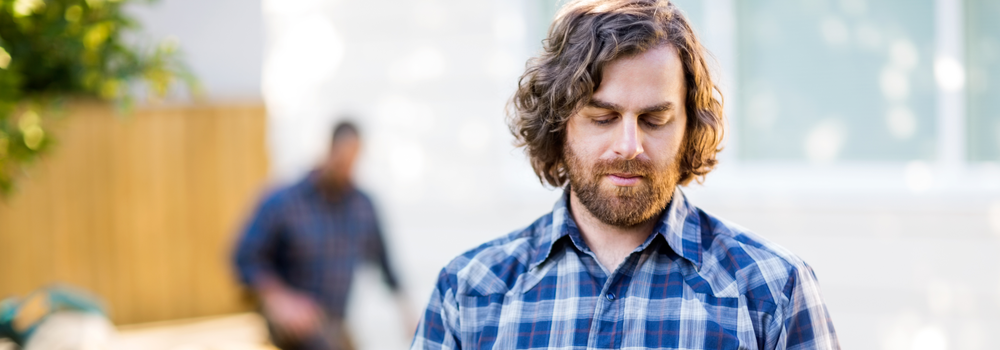In the popular TEDx talk called “Designing Your Life,” Stanford design professor Bill Burnett explains how to use design principles to get unstuck in your life. [https://www.youtube.com/watch?v=SemHh0n19LA] Not only do these principles help you get unstuck, they are principles for designing the life you want. Anyone recovering from addiction is essentially faced with the task of creating a new life. Here’s a brief look at how design principles can help.
Connect the dots.
One of the most important big-picture aspects of recovery is living a meaningful life. People feel better about their lives and themselves when they feel connected to the values and the people they care about most. Burnett identifies three things–”dots”–that must be connected if you want to have a sense of meaning in your life. Those are what you believe, what you do, and who you are. If you can make your view of work and life fit with your idea of who you want to be, you can construct a coherent, meaningful narrative about your life.
Avoid the gravity problem.
The gravity problem is the attitude of being stuck. There may be something you don’t like about your life but you feel like there’s nothing you can do about it. However, that changes whatever it is you don’t like from a problem to be solved into an unfortunate condition of your life. So, for example, if you are unwilling to do something about a substance use disorder, or even unwilling to accept it as a problem, you’re not going to work toward a solution. However, if you do accept it as a problem you’re willing to take on, you can identify possible solutions and move forward.
Imagine three lives.
One of the biggest challenges in creating a new life is forming a coherent vision of what we want that life to be. We often fall into the trap of thinking there’s one perfect life for us and we have to make it from scratch. A more helpful way to think of it is that there are many possible lives that can make you happy and fulfilled. Start by thinking of three possible paths. The first one is simply the best outcome for your current path, whether that’s continuing to use drugs and alcohol or continuing on your current path of recovery, living where you live, working where you work, and so on. The second path is your plan B. What do you do if some important part of your life, say, your job or your family suddenly disappeared? The third life is what you would do if you had plenty of money and you didn’t care what anyone thinks. Keep in mind, you don’t necessarily have to choose one of these lives. It’s just an exercise to broaden your options. You can use them to incorporate new elements into your current life.
Prototype your life.
After you have some idea of what you want your life or your recovery to look like, try some things out. There are two primary ways to do this. First, talk to people who have been where you want to go. Look for resonance. If someone tells you about a recovery journey that sounds a lot like yours and that person has a recovery that appeals to you, consider asking him or her to be your mentor. Second, try new things in a limited way. For example, if you’re still drinking, just stop by an AA meeting. You don’t have to commit; just see what it’s about. Or if you’re in recovery, try out a new hobby. Take a class or a few lessons to see if you might like something.
Choose well.
At this point, you’ve generated a lot of possibilities for your new life in recovery. Unfortunately, you can’t live every life or even dabble in everything that interests you. You have to make some choices. There are two main strategies for this. The first is to eliminate options. Some options won’t appeal to you at all and some you may be only lukewarm on. Go ahead and set those aside and focus on the things you’re most excited about. The next thing is to make a choice and move on. People are typically happier with choices they commit to. If they have the option of changing, they get caught up in endless second guessing and become miserable. So whatever choice you make about recovery–what program you choose, what therapist you choose, and so on–you’ll feel better if you just stick with it instead of wondering if you made the one perfect choice.
Tree House Recovery of Portland, Oregon uses cutting-edge techniques in individualized programs to help men achieve freedom from addiction. Taking a holistic, sustainable approach to the inner and outer effects of addiction ensures you or your loved one will emerge with the confidence and skills to manage your addiction independently. No one is beyond help- our Admissions Counselors are available 24/7 at (503) 850-2474



